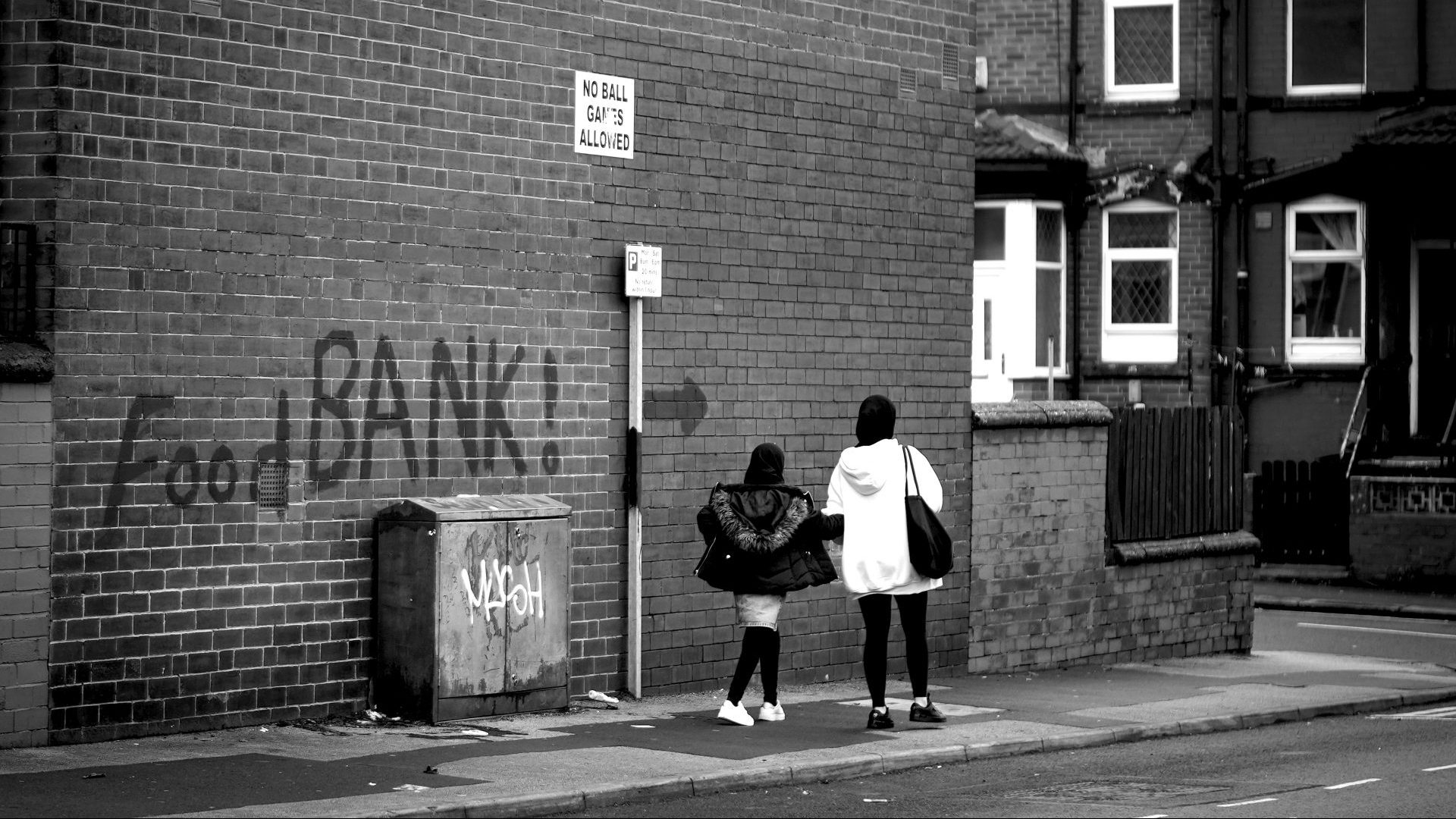I was at a business dinner the other day and was asked how bad I thought this recession was going to be, on a scale of one to 10. I said “six to seven” and everyone sighed with relief.
But then I had to explain that a normal recession measured two to three on most people’s scale. Normal recessions mean six months’ economic contraction, a necessary if painful readjustment of house prices, rising unemployment and then a welcome return to growth as pent-up demand and investment lift the country back on to its long-term growth rate, if not higher.
This one is not going to be like that. It is going to be far, far worse.
For a start, you really don’t want to start a recession from here. The UK is the only G7 country to have failed to recover economically from Covid, which means the UK’s economy is still smaller than before the lockdowns. The UK is also expected to be hit by the massive rise in fuel, energy and commodity prices caused by the war in Ukraine more than any other G7 country except Russia. In short, UK growth will be the second worst, after Russia.
How did we get to be such a failure? Well, we have the huge added disadvantages, which no other country has, of Brexit and having to placate the markets because of an amazingly inept and ideologically driven budget that was such a disaster that it tanked the pound, forced up borrowing costs and led to the near-collapse of the pensions industry.
A week is a long time in politics, but the shockwaves of events like those can ripple on for years, and the UK will be paying for those disasters well into the 2030s.
Brexit is costing at least 4% of British GDP permanently, and the budget that Jeremy Hunt had to introduce to try to fix the budget mess means, as the Office for Budget Responsibility (OBR) explained, “the tax burden rises from 33.1% of GDP in 2019-20 to 37.1% of GDP” by 2027-28, its highest sustained level since the second world war. In addition, “despite cuts in departmental budgets, total public spending also rises – from 39.3% of GDP in 2019-20 to 43.4% of GDP in 2027-28”.
Which means that despite slashing departmental budgets even further, in six years’ time the government will still have to borrow huge amounts to make up the gap between what it is receiving in tax and what it has to spend.
Going into a recession when the government has been so stupid that it has gone from a multibillion-pound tax giveaway – but only for those earning more than £150,000 a year – to years of austerity and soaring taxes in a matter of weeks takes some doing… although it proved to be well within the capabilities of the Tories.
But all that just tells us what the starting point for 2023 will be. Because those figures and those taxes are only the best guess of the broad picture. How it will feel on the ground and how much worse it could get will only reveal themselves in the year ahead.
A typical household’s 12-month energy bill will be £2,500 this winter and £3,000 next winter; that is simply unaffordable for vast swathes of the country. Energy costs are just one part of a soaring inflation rate that will reduce living standards by 7% in total over the next two years; that alone will wipe out eight years of growing living standards.
People will, on average, be poorer in 2025 than they were in 2014. This is unprecedented.
The OBR’s figures are, of course, based on the government’s declared policies, such as ending the energy price support for business in May of 2023. But this is almost certainly impossibly optimistic, frankly unsustainable, and nothing short of economic self-harm.
As many firms and lobby groups are pointing out, the idea that British industry will be left on its own to cope from May is absurd and very damaging. Make UK, the manufacturing industry’s lobby group, says the sector is already seeing firms move production from Britain to plants in Spain and elsewhere on the Continent, not because energy bills are necessarily lower but just because the price guarantees there run well into the year after next. They are predictable and therefore manageable; with UK energy bills due to soar uncontrollably in May, planning will be impossible.
This short-sightedness will doubtless have to change, but will probably be too late for many business decisions. The Treasury will once again have to borrow even more to fund a U-turn when the economic damage will already have been done.
The government seems to be betting the house on this being a very painful year – well two years really; growth will be anaemic, at best, in 2024. But it and the OBR think growth will bounce back to over 2% by 2025, as pent-up demand finally breaks free. Unfortunately for them and us, they have been expecting growth to bounce back in a few years’ time for a small age now and it hasn’t happened. Others do not share their perpetual optimism.
For many other forecasters, the reality is far starker: 12 long years of austerity, low productivity, worse education and training, weak state and business investment, and spending cuts suggest that the new trend rate for UK growth is well below 2%, meaning there is no sign that the British economy is going to boom anytime soon. They expect a sustained period of below-trend growth long after this recession ends.
The Bank of England, for instance, thinks the recession has already started, will continue through all of next year and the first half of 2024 and that the UK will then manage a paltry growth rate of 0.5% in 2025. The bank’s predictions carry extra weight because one of the biggest drags on growth it is expecting to see are higher interest rates; and it is in charge of increasing interest rates.
Those interest-rate rises will throw many households and businesses to the wolves. The cost of borrowing for everything will soar, from investment in new machinery and factories to mortgage rates, car loans, credit cards and overdrafts.
House prices will fall and the house builders will stop building because there will not be enough people earning enough to buy the finished properties. Unemployment is expected to rise, although this may not be as bad as expected for one simple reason – the UK economy is fast running out of workers and so companies will cling on to the staff they have, for fear they won’t be able to recruit again when the recovery finally happens. This, in itself, is a huge hit to growth.
Business leaders will take one look at the spending power of consumers, which is melting away, and refuse to invest. In fact, they are saving cash as we speak, to shelter themselves against the coming storm. Further disincentives to business investment will continue to come from Brexit, and especially the government’s inane plan to tear up all EU regulations, meaning no one has any idea what the rules will be in six months’ time or how they will be able to meet them.
But this is all just the big picture. It is easy to witter on about GDP growth rates, house prices, fuel costs and unemployment in an abstract way. But this recession is going to hurt millions of people in a way that we have not seen since before the second world war.
The welfare state has been eviscerated, the safety net is full of holes, benefit recipients are still portrayed as scroungers, and the savings rate for ordinary people has been far too low for far too long, so they have nothing to fall back on. Wages have been squeezed for years for essential workers and many others, and now the government has run out of money. Or to be more accurate, it does not care enough to find the money to heal the pain it is causing to millions of people.
Tory MPs now boast about the new food banks in their constituencies as if the desperate need for charity is something to be applauded. The government has even failed to run a simple education campaign on how best to save energy.
Warm banks (a phrase I had never heard of until a few months ago) are desperately needed, children are already going to school hungry and people are asking for food donations that don’t need cooking or refrigerating, as they cannot afford to turn on the oven or the fridge. To be brutally honest, people will die this year for want of basic essentials, food and warmth.
And this is just the start. The downturn has hardly started and even after this recession the increasing timebomb of an ageing population means there can be no going back to tax cuts and spending cuts, ever.
Pensions, the NHS and social care will demand ever-larger taxes, mainly on the young to pay for the old. The fantasy that we could afford to run a European-style welfare state without high taxes is finally ending. That should mean we start talking about how much taxes have to rise to fix the country, but already the debate is being dominated by the right wingers who got us in this mess and who believe the answer is to double down and slash the state further, privatise the NHS and smash what little union power still exists.
What should happen instead is that we finally start to see ourselves as we really are: ageing, cold, poor, badly governed and appallingly led by a selfish and uncaring, divisive elite, pursuing damaging fantasy policies that have brought us to this pass, and yet still with delusions of grandeur.
Welcome to 2023. Have a happy new year.




